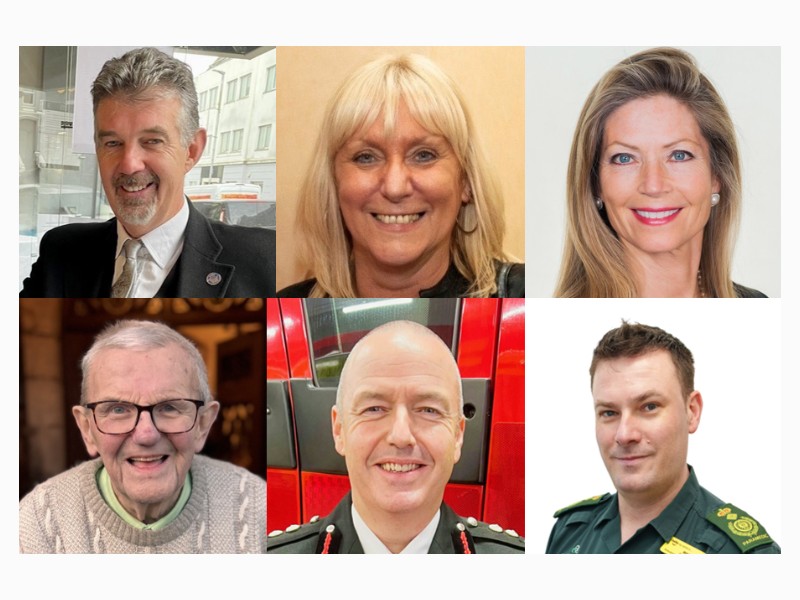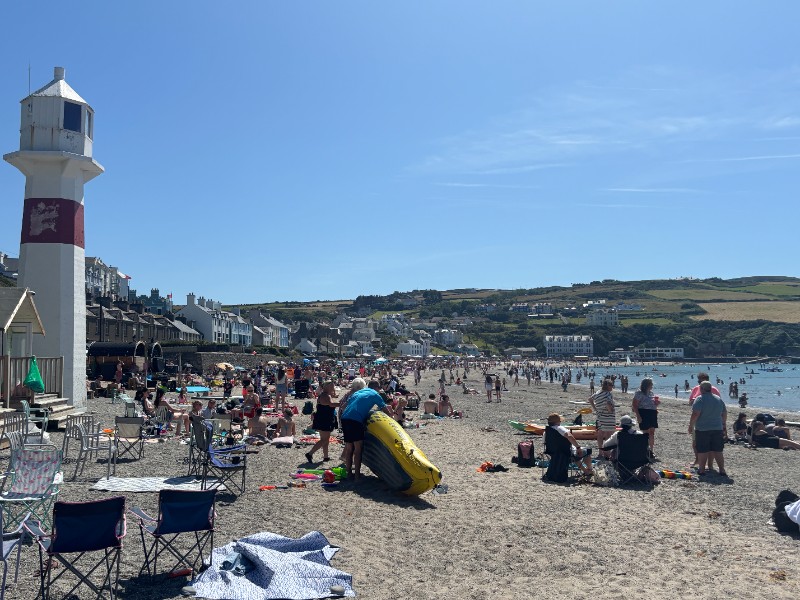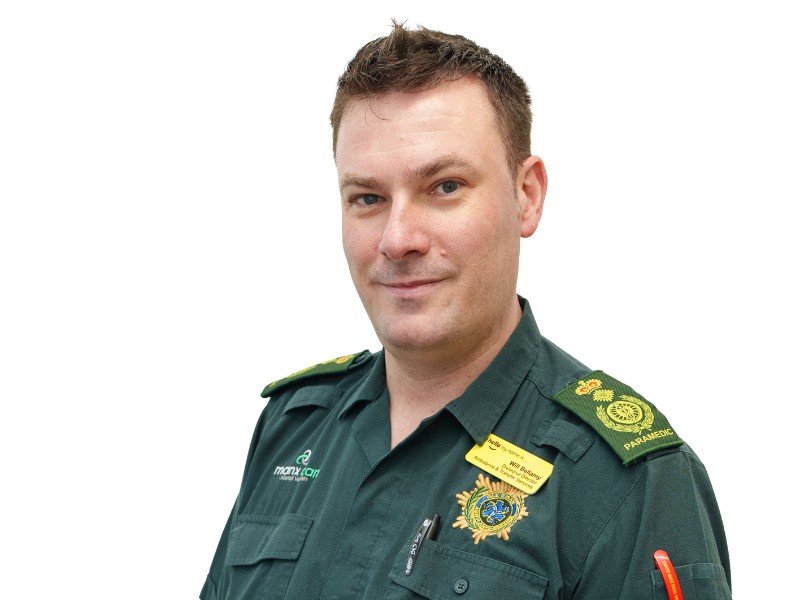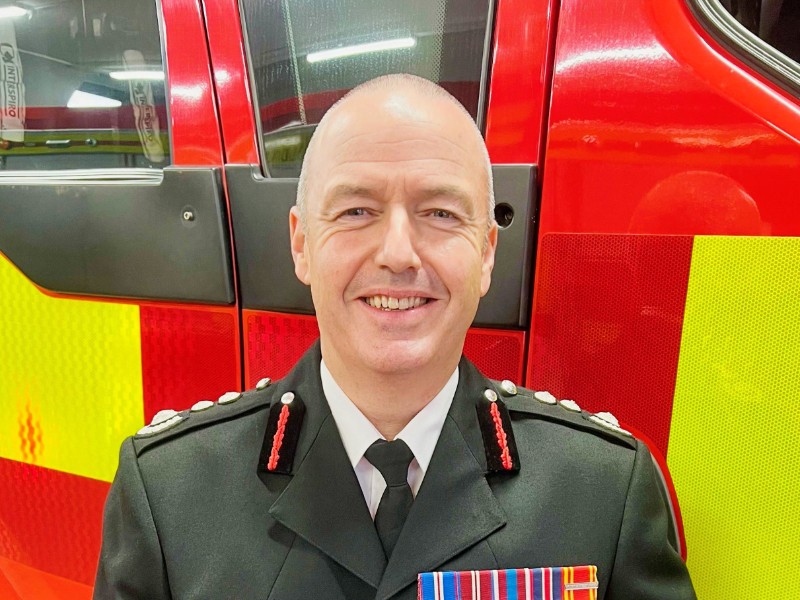
Retired Detective Chief Inspector gives his view
'Within the police service when you look at domestic abuse, you have a manual which is 96 pages thick. But the fact of the matter is, if services, not just the police, don't get that case right, the manual I would pick up as senior investigations officer is 304 pages thick - the murder investigation manual.'
John Trott served 28 years in Devon and Cornwall police and as a former Force Lead, he is now dedicated to educating services both at the grass roots and within the police on how to handle domestic abuse.
He says the subject is 'massive' and believes it is not fair for people to deal with victims without grasping the complexity of it.
'You can't expect professionals, whether that's police officers, social services, third sector agencies to understand it, unless they have had some sort of input and training in relation to the issues.'
As director of his own safeguarding consultancy firm Abuse Free Life, Mr Trott now delivers training in an effort to inform both the policymakers and frontline workers with a better understanding of the multifaceted nature of domestic abuse.
He visited the Island this week upon invitation from local charity Safe Strong Secure, who successfully petitioned for law reform on the Island.
Campaigner and charity founder Tamasin Wedgwood is eager to keep the issue at the fore of Manx politics and so, it's hoped Mr Trott's address to Tynwald members on Monday (22 Oct) will be influential in informing the imminent changes to legislation.
'Domestic abuse is horrendous for a victim, it's immense and for most people who've never been in an abusive relationship it's really hard for them to understand.'
Historically, Mr Trott admits police handling of domestic abuse wasn't as pro active as it could be.
'When I joined the force in the 1980s, the way we dealt with domestic abuse was just appalling. We'd effectively attend an incident and sit both parties round a table and it was clear who the victim was and it was clear who the perpetrator was. Yet we would sit there, try and mediate and achieve nothing. We would walk away and the victim would be abused thereafter.'
Thankfully, he says, things have improved in England and Wales with a far greater emphasis on keeping people safe and since revised legislation in 2015, 10 of 43 police forces have been trained on the matter.
'We have multi-agency risk assessment conferences for victims. We also have national risk assessments that all services complete and understand and so because of that, there's uniformity in the area.'
In August, the Department of Home Affairs concluded a public consultation exercise into the potential reshaping of the Diversion of Offenders and Domestic Abuse Bill, where it is now expected to see a split of the legislation to allow for a single, dedicated bill for domestic abuse which will allow for early intervention in cases.
The proposal is welcomed by Mr Trott, but he reaffirms the need for grass roots support to ensure the effectiveness of the law is maximised.
'It's no good having legislation without understanding the nuances of it. It's great having it there but it needs to be backed up by the people directly working with victims of domestic abuse. The powers that be on the Island need to ensure the people on the frontline get the law so they can implement it and ultimately help victims.'
According to Mr Trott, universal figures state that one in three women and one in six men suffer from forms of domestic abuse, be it physical, psychological, emotional or financial. Before domestic abuse is reported he says, a victim will have suffered on average 50 incidents of abuse.
'Sometimes you only get one chance to get it right and if you don't, as a professional service you may never see them again. If victims don't get the right reaction or the right support at that time, they're going to have no faith in the system whatsoever.'
Police figures revealed the number of incidents of domestic abuse on the Island is rising with 460 reported in 2016 and 515 in 2017.
Home Affairs says it is aiming to have a renewed bill before the House of Keys by April next year, so by engaging with the politicians, what does Mr Trott think of the Island's standing? Is there the potential to craft something quite progressive here?
'There are more perpetrators on this Island than there are people trying to help. But I believe, if all the services work together on this, you'll beat this evil scourge of domestic abuse.
'It would be lovely for me in two years time to be training police forces in England and Wales and say "you want to have a look what the Isle of Man are doing" because I think, if you adopt the right legislation here, government, the police and the other providers can actually lead the way.’


 New Year Honours for six Isle of Man residents
New Year Honours for six Isle of Man residents
 Island enjoyed 'reasonable' summer despite no record-breaking temperatures
Island enjoyed 'reasonable' summer despite no record-breaking temperatures
 Head of Ambulance Service 'really privileged' to receive New Year Honour
Head of Ambulance Service 'really privileged' to receive New Year Honour
 Chief Fire Officer 'overwhelmed' after receiving New Year Honour
Chief Fire Officer 'overwhelmed' after receiving New Year Honour
